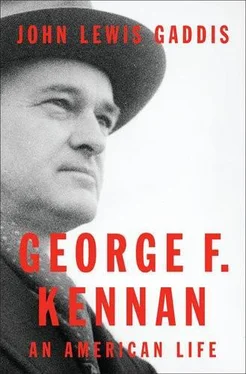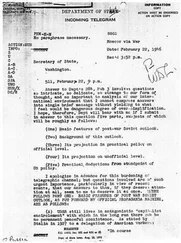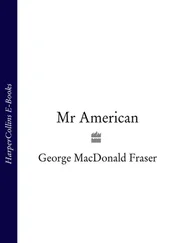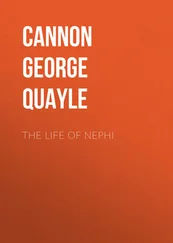The passport was for a summer trip to Europe, a compromise remedy for George’s wanderlust. He did not do it penniless, but he came close. He did do it with a Princeton friend whose “uninhibited Greek hedonism was a good foil to my tense Presbyterian anxieties.” Constantine Nicholas Michaelas Messolonghitis routinely hitchhiked from his home in Ohio without apparent effort or worry. He had resigned from Key and Seal before George did. “His wide-eyed innocence about the East was even more staggering than my own;… [and] in the easy glow of his provincial garrulousness (he was a character, in reality, from Thomas Wolfe) I softened and felt at home.” Traveling with Nick would mean “toil, trial, trouble, and tribulation—but still human nature is so unreasoning that I look forward to it.” 34
The trip was unremarkable in one sense: Europe was full of young Americans bumming around in the summer of 1924. What was remarkable was the handwritten account of over ninety pages that George kept and preserved. It was the first of many travel diaries he would compose throughout his life, and it opens a window into who he was at the age of twenty, still an adolescent, soon to cease to be one.
The journal begins, predictably, with a list of traveler’s check numbers and addresses of adults to be contacted if something went wrong. It then describes hitchhiking from Princeton to New York, and an exhausting trek up and down docks on both sides of the Hudson in an unsuccessful search for a ship in need of inexperienced hands. June 24–25 became an odyssey, with George and Nick spending most of the day on the waterfront in Hoboken; then crossing back to Manhattan but failing to find friends with free beds, couches, or floors; then running into an acquaintance of Frances’s who did at least provide tickets to the midnight show at the Hippodrome; then being turned away from the YMCA at four A.M.; and finally sleeping for the rest of the night in Central Park—all the while dragging along the necessary baggage for a summer in Europe. By eight A.M. the boys were up and at Battery Park, “about the seediest looking persons [there], which is saying something: soiled, wrinkled clothes, two day beards, unkempt, hot as usual, and tired to death. Our morale was utterly shot.” 35
But there was a ship, the SS Berengaria , which offered third-class passage at $97.50 apiece. “‘Nick,’ sez I, ‘on board that boat there must be a bath and a bed.’ With that thought our reason fled, and we bought tickets forthwith,” an extravagance that, before they had even sailed, exhausted more than half their funds. On board were some of the most “scurvy, seedy, filthy, low-down, diseased, wrecked, ignorant, miserable human beings that God ever made a bad job on.” But there were also baths and beds, the sea was calm, and there were a couple of “nice girls” from Mount Holyoke and Wellesley with whom to lounge in deck chairs, compare notes on the fellow passengers, listen to the quartermaster’s yarns about the Battle of Jutland, enjoy ice cream provided by a bribed steward, and peer through a window at a fancy-dress ball in first class. 36
Landfall was at Southampton on July 2, and George’s first sight of England amazed him. The taxis were “antiquated, fantastic, ancient hacks,” the streetcars were double-decked, most of the houses were old, none of the buildings were high, and some of the male inhabitants dressed in a way that would “cause a good riot in the U.S.A.” The boys spent the next few days hiking north of Exeter—George, reading Lorna Doone at the time, liked the moors—and occasionally hitching rides: one was unauthorized on the back of a slow-moving bus, another was on a two-wheeled dog cart driven by an amiable woman to whom they attempted, without success, to explain the virtues of free trade. They celebrated the Fourth of July in Dunster by splurging on sauterne, but found on reaching London that sympathetic waitresses were sometimes willing to shave a few shillings off their bills. Efforts to find work failed, provoking poetry, first from George:
Dear God, who got us in this town
Without a solitary crown
For Christ’s sake, get us back again,
And make it snappy, God, Amen.
and then from Nick:
Oh Lord, it gives us both a pain
To eat this rotten London hash;
Please ease up on the goddam rain,
And send us down a little cash.
After worrying for days about funds, George concluded that they should cross the Channel, make their way across France to Marseilles, and persuade the consul there to send them home. “[T]o hell with finances…. Nick was of course charmed with the idea.” 37
They arrived in Paris on July 17. “I have never seen any city even remotely resembling it,” George wrote. “It has all the ‘magnificent distances’ of Washington, the boulevards of Philadelphia, the metropolitan freedom and gaiety of New York (but more so), the time-honored mellowness of London”—and the taxis disregarded speed limits, “just as they do in Chicago.” The Arc de Triomphe seemed to Nick “quite satisfactory,” although “I was so shot I wouldn’t have known it from a hitching post.” The Eiffel Tower’s elevator was rotten “in comparison to the Woolworth Bldg.” There were visits to the Louvre, the Moulin Rouge, and Versailles, the last of which reminded George that ceremonies could be comic opera: he had first seen this at the unveiling of the Revolutionary War battle monument outside of Princeton, with “poor Harding sitting there in a glaring sun on the white concrete steps, mopping his brow with a handkerchief, and caring more for a glass of good, cold beer, than [for] all the heroes of history.”
July 26 brought an unexpected windfall at the American Express office: $100 from Frances, with instructions to ask for more if required. “[S]he evidently got scared by the letter I wrote to her from London, and told the whole tale to Father, who, of course, gritted his teeth, boiled with rage, and assured her he would send me all [I] needed.” Priding himself on his independence, George professed to be appalled: “She couldn’t have meant better; she couldn’t have done worse.” It would be a while before he could show his face in Milwaukee again. 38
But the cash made it possible to get to Italy, where George was afflicted by “terrible and weird dreams” about his family. There were, he thought, two kinds of dreams: random impressions “flashing around in the brain at will, with no semblance of order,” and, less frequently, dreams in which “we see and hear clearly interesting things which we know we have never heard or seen in real life…. It seems to me that the only possible explanation for these lies in the action of some kind of mental telepathy.” The dreams in Turin were of the latter variety, and they left him “very much depressed.”
It was a signal, perhaps, that it was time to go home, so George and Nick proceeded to Genoa, where they began again “the sad parade of the water-front. If there be anything… more discouraging than trying to get a job on a boat I have yet to find it.” They sought out, as planned, the American consul: “We lied to him about how much money we had and he lied to us in return about our chances of working away from this dump.” It was, he insisted, “utterly impossible…. He won’t help us out until we’re flat broke or until he’s convinced that we couldn’t be scared into wiring for money.” But “when we go broke we go to jail…. Then, the question is, must he send us home or can he let us stay in jail as long as possible?” 39
Increasingly desperate and with George suffering from dysentery—“Nick kindly informs me that people die from it”—they did accept another $130, wired this time from Milwaukee. With it they were able to make it to Paris, where George found a doctor and where “Nick was a nervous wreck, as jumpy and fidgety and weak as an old woman,” and then on to Boulogne-sur-Mer, where they had booked passage on a new Holland-America ship, the SS Veendam. She was, riding at anchor, “the most cheering sight I have seen for some time,” even in third class “a revelation of comfort and cleanliness.” George and Nick disembarked in New York on August 23 with $2.25 apiece, “the proceeds of one pound we had saved and cashed on the boat.” 40
Читать дальше












